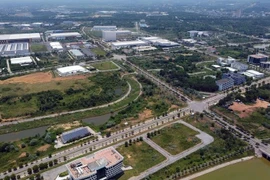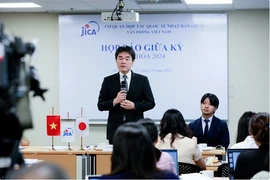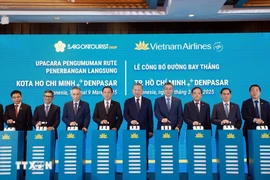Hanoi (VNS/VNA) - Vietnam’s first radar-based Earth observation satellite, LOTUSat-1, has been completed, with its ground system in Hoa Lac Hi-tech Park (Hanoi) fully prepared to receive data once the satellite is launched into orbit.
The LOTUSat-1 project stems from a 2019 agreement between the Vietnam National Space Centre (VNSC) and Japan’s Sumitomo Corporation.
The deal includes satellite, equipment and personnel training, and was funded through a special Official Development Assistance loan from the Japan International Cooperation Agency (JICA) under the Special Terms for Economic Partnership framework.
Weighing approximately 600kg, LOTUSat-1 employs cutting-edge radar technology capable of detecting objects as small as one metre on the ground, with the ability to observe day or night in all weather conditions.
This feature is particularly valuable for Vietnam and Southeast Asia, where tropical climates often obscure visibility with clouds and fog.
Data from the satellite is expected to meet Vietnam’s growing demand for high-quality imagery, aiding in disaster response, climate change mitigation, natural resource management and environmental monitoring.
VNSC Director Pham Anh Tuan said the satellite was initially scheduled for launch in February 2025. However, the plan has been postponed with no new date confirmed due to the unsuccessful test launch of Japan’s Epsilon-S rocket on November 26, 2024.
Japanese partners are now deliberating whether to proceed with the Epsilon-S rocket or switch to an alternative launch vehicle.
The VNSC is working closely with the partners to determine a new launch timeline, ensuring the satellite operates reliably as soon as possible after deployment.
Tuan also noted that a team of Vietnamese engineers and experts had been dispatched to Japan to monitor the satellite’s design, assembly and testing processes in simulated environments.
"These are critical steps to acquire and gradually master the technology," he said, emphasising the opportunity for Vietnam to gain practical experience in large-scale industrial production and deepen its expertise.
On the ground, a sophisticated system has been established at the Hoa Lac High-Tech Park, featuring a 9.3m-diameter ground antenna to receive signals, a satellite control and operations centre, and a data processing hub.
The VNSC has adopted technology from Japan to operate this system.
Vietnam’s space programme has made notable strides in recent years, including the launch of two VINASAT telecommunications satellites, the VNREDSat Earth observation satellite and the development of three smaller satellites –PicoDragon, NanoDragon and MicroDragon.
Tuan described space technology as a 'symbol of technological strength and competitiveness' for nations worldwide. He stressed that space should be recognised as one of five key domains Vietnam must master to safeguard its national interests.
Looking ahead, he urged Vietnam to take proactive steps in space technology, particularly in satellite development, to achieve self-reliance in designing and manufacturing critical components./.
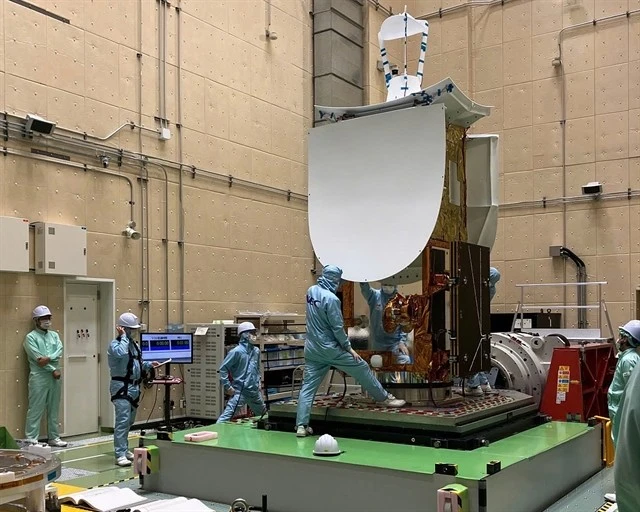
See more
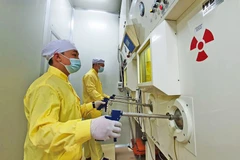
Institutional perfection needed to advance nuclear energy application
Recognising the importance of nuclear energy in advancing the nation's socio-economic development, the National Assembly (NA) passed the Law on Atomic Energy in 2008.
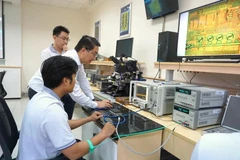
Innovation – breakthrough path for Vietnam’s development: experts
Experts in Singapore believe that innovation represents a breakthrough path for Vietnam, which is advancing to the new era - that of the nation's rise.

Viettel High Tech forms partnership to test 5G solutions in Middle East
The partnership between Viettel High Tech and DU aligns with the UAE’s national digital strategy, which prioritises investment in telecommunications infrastructure to drive economic growth. Successful trials will pave the way for large-scale commercial deployment, positioning the UAE as a global hub for advanced telecommunications technology.

Vietnam’s GreenAms Robotics triumphs, advances to Global VEX Robotics finals
The 13-member team will now represent Vietnam at the VEX Robotics World Championship in May 2025 in the US.

Viettel introduces "Make in Vietnam" cybersecurity solutions to European market
These solutions aim to help European companies and organisations proactively protect their systems against evolving cyber threats, minimise data loss risks, and ensure business continuity.
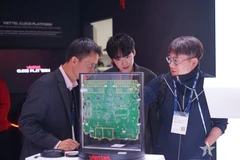
Viettel represents Vietnam at Mobile World Congress 2025
Viettel is exhibiting 22 products across three key categories of network infrastructure, digital platforms, and applications, marking the largest number of products it has ever introduced at the annual event.

International experts participate in hardware camp in Vietnam
The programme is jointly organised by the Rencontres du Vietnam Assocation, the International Centre for Interdisciplinary Science and Education, and its Institute for Interdisciplinary Research in Science and Education (IFIRSE).
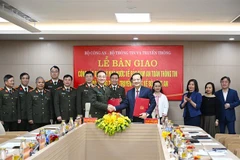
Cybersecurity protection function handed over to public security ministry
The Ministry of Information and Communications (MIC) transferred its responsibility of ensuring cybersecurity to the Ministry of Public Security (MoPS) during a ceremony held in Hanoi on February 28.

MEDIAIPLUS unveils AI-powered breakthroughs in clinical trials at MWC 2025
MEDIAIPLUS will showcase its innovative platforms MediC and FiCRO at MWC 2025, held from March 3 to 6 at Hall 7, Stand 7F62, Fira Gran Via, in Barcelona, Spain.

Resolution No. 57 removes barriers for sci-tech development
On December 22, 2024, the Politburo issued Resolution No.57 on breakthroughs in science, technology, innovation, and national digital transformation, regarded as a resolution that aims to unleash Vietnam's technological potential.
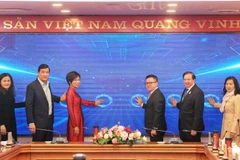
Second Photo and Video Award “Technology with heart” launched
Speaking at the launching ceremony, VNA General Director Vu Viet Trang said that the second Technology with heart award was officially launched to continue inspiring creativity and pride in breakthrough achievements of Vietnamese-branded technology. The initiative also aims to realise the Party and State's policies on the breakthrough development in science, technology, innovation, and national digital transformation, creating a solid foundation for the nation's prosperity in the new era.
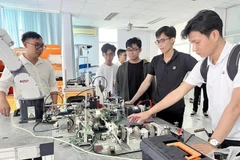
Networks of technology talent training centres to be established
The project aims to establish at least one or two networks of such centres in each priority technology sector serving Industry 4.0.
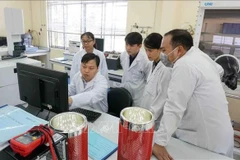
Vietnamese universities open door to world’s best minds in sci-tech
The Vietnam National University (VNU) - Ho Chi Minh City is bringing the world’s brightest scientific minds to Vietnam.

Google ready to support Vietnam in AI applications for education, training
Google is willing to provide free access to Google Workspace, Google Space, and Google Classroom for all students and teachers in Vietnam.

Russia's Rosatom eyes to boost new technology cooperation with Vietnam
Russia's Rosatom has expressed strong interest in fostering collaboration with Vietnam in quantum technology.

Innovation forum in Singapore draws global Vietnamese talent to shape tech future
The Vietnam Global Innovation Connect Singapore 2025, themed “Connect – Converge – Create: Empowering the Future with Technology”, focuses on three strategic issues of semiconductors, AI, and financial technology.

Digital transformation paves way for Vietnam’s economic modernisation
With a rapidly expanding economy, a youthful, tech-savvy population, and robust government initiatives, Vietnam is emerging as a leader in digital innovation, it wrote, adding that Vietnamese businesses are increasingly harnessing technology to streamline operations, improve customer experiences, and contribute to economic growth.

Vietnam urged to seize digital transformation opportunities
Experts highlighted a young population, the Government's support, and a thriving startup ecosystem are driving the country’s innovation.
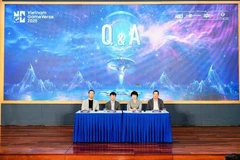
More tech giants expected to join Vietnam GameVerse 2025
Vietnam GameVerse 2025, with activities taking place from February to May, will feature tech giant Apple along with Beta and Google which already joined the 2024 edition.
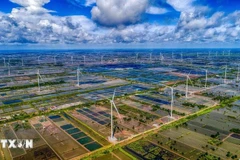
PM approves plan to shift from coal to clean energy
It aims to mobilise domestic and international resources for power sector development, adopt co-firing technology with clean fuels to gradually reduce emissions from coal-fired plants, phase out outdated and inefficient facilities, and accelerate renewable energy expansion to ensure stable and affordable electricity supply.
